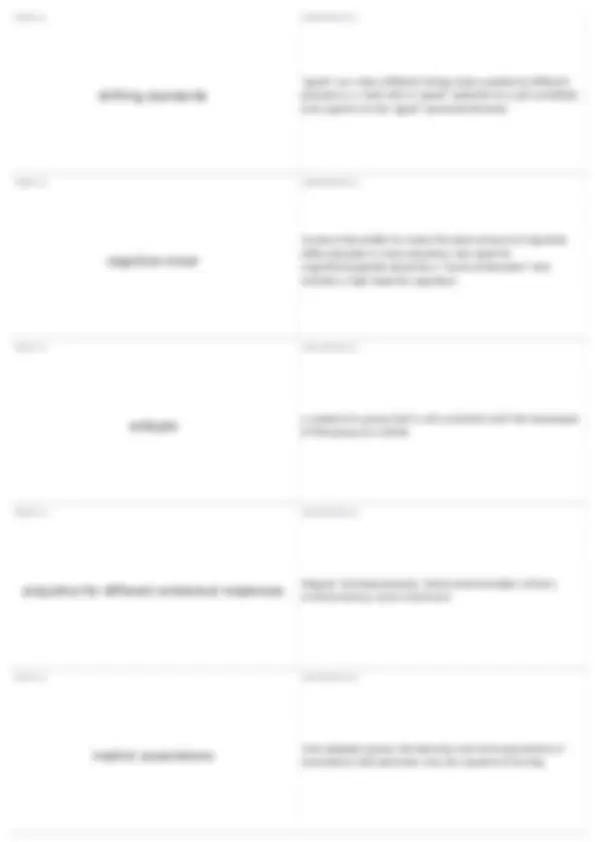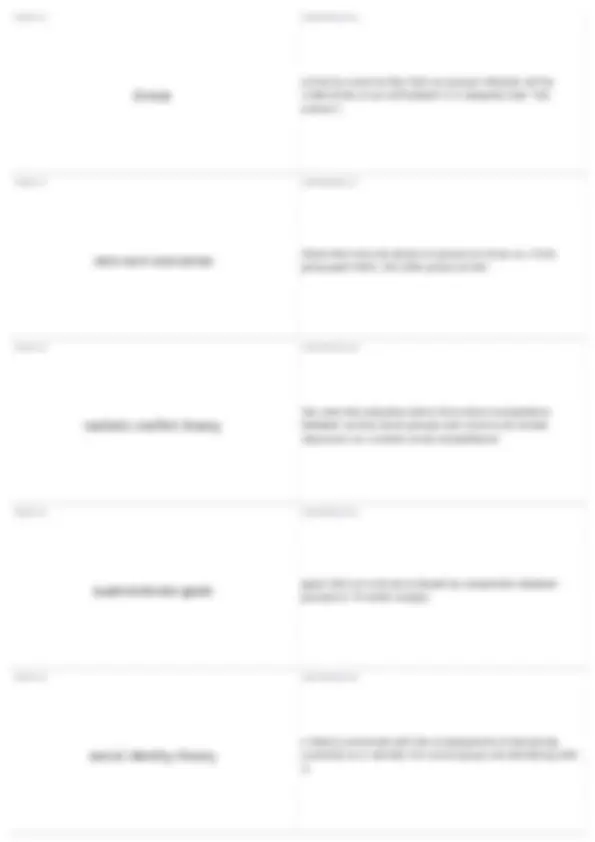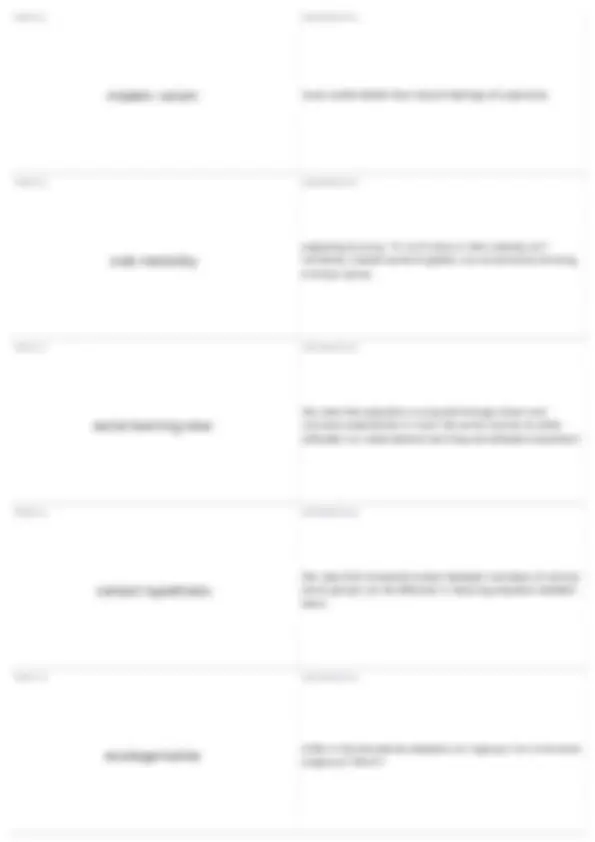





Study with the several resources on Docsity

Earn points by helping other students or get them with a premium plan


Prepare for your exams
Study with the several resources on Docsity

Earn points to download
Earn points by helping other students or get them with a premium plan
Community
Ask the community for help and clear up your study doubts
Discover the best universities in your country according to Docsity users
Free resources
Download our free guides on studying techniques, anxiety management strategies, and thesis advice from Docsity tutors
Class: SOP 3004 - Social Psychology; Subject: Social Psychology; University: University of North Florida; Term: Spring 2013;
Typology: Quizzes
1 / 6

This page cannot be seen from the preview
Don't miss anything!




negative emotional responses based on group membership TERM 2
DEFINITION 2 negative behaviors directed toward members of different social groups TERM 3
DEFINITION 3 beliefs about social groups in terms of the traits or characteristics that they are believed to share TERM 4
DEFINITION 4 we weigh possible losses more heavily than equivalent potential gans; as a result, we respond more negatively to changes that are framed as potential losses (i.e. the loss of a dollar is perceived as more negative than the inverse of gaining a dollar is positive) TERM 5
DEFINITION 5 stereotypes concerning the traits possessed by females and males that distinguish them from each other (Bruce/Brenda story, boy raised as a girl)
DEFINITION 7 barriers based on attitudinal or organizational bias that prevent qualified females from advancing to high-level positions TERM 8
DEFINITION 8 choosing women for leadership positions that are risky or when the outcome is more likely to result in failure TERM 9
DEFINITION 9 hiring based on group membership; concerns a numerically infrequent presence of members of a particular category(ihirees self-confidence takes a hit if they realize they were hired as a token to avoid discriminant policies within a business; a technique for letting prejudiced people off the hook) TERM 10
DEFINITION 10 stereotyping and discrimination directed to people who are single; assumed traits of single candidates viewed as inferior to assumed traits of married candidates
primarily concerns fear that our groups interests will be undermines or our self-esteem is in jeopardy (see "risk averse") TERM 17
DEFINITION 17 those that only one person or group can have; so, if one group gets them, the other group cannot TERM 18
DEFINITION 18 the view that prejudice stems from direct competitions between various social groups over scarce and valued resources (i.e. summer camp competitions) TERM 19
DEFINITION 19 goals that can only be achieved by cooperation between groups(i.e. fix water supply) TERM 20
DEFINITION 20 a theory concerned with the consequences of perceiving ourselves as a member of a social group and identifying with it
more subtle beliefs than blatant feelings of superiority TERM 22
DEFINITION 22 appealing to envy; "if I can't have it, then nobody can" mentality; viewed asshort-sighted, non-constructive thinking among a group TERM 23
DEFINITION 23 the view that prejudice is acquired through direct and vicarious experiences in much the same manner as other attitudes (i.e. observational learning and attitude acquisition) TERM 24
DEFINITION 24 the view that increased contact between members of various social groups can be effective in reducing prejudice between them TERM 25
DEFINITION 25 shifts in the boundaries between our ingroup ("us") and some outgroup ("them")